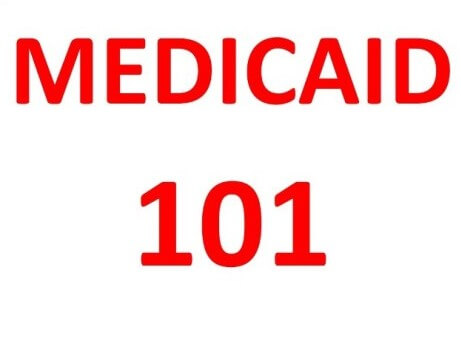
Seasonal Changes and Alzheimer’s Disease
December 11, 2017
Medicaid 101: Part 1 – What Are Medicare and Medicaid?
February 1, 2018A new year means new beginnings – spending more time with your family, paying closer attention to your health, learning a new skill or hobby. As you take a close look at things you can improve in 2018, don’t forget your estate plan.
If you do not have an estate plan in place, now is the time to do it. It doesn’t matter if you have a lot of assets or a modest lifestyle, no kids, young kids, or teenagers, spouse or no spouse – you should have a plan in place.
Even if you have an estate plan – is it up to date? Did you create it 10 years ago, before you had kids, or before two of your kids got married and changed their names? Look to see if the information in your documents is still accurate and be sure your plan effectuates your wishes.
Creating an estate plan doesn’t just mean writing out your last will and testament. Of course, this is an important part of the plan – how do you want your assets to be divided upon your death? Do you have specific goals or intents for your assets? Maybe you want to see your kids or grandkids through college, or perhaps you have charitable intentions. It is important to think about these things now, while you are able-minded. Have discussions with your spouse and children about your wishes.
But an estate plan is more than just what happens after you die. Just as importantly, someone should have the authority to handle your affairs while you are alive, in the event you are unable to handle them yourself.
If you aren’t quite sure where to start or what questions to ask, seek advice from an estate planning attorney. Your attorney can ask questions to help you think about both the big picture and the minor details. Don’t worry about having precise wording for your documents – you can tell your attorney what your goals are and he or she can prepare language that expresses your ideas.
When you think about your estate plan, think about these following documents:
Durable Financial Power of Attorney: In this document, you name an agent to act on your behalf with respect to your property – personal property, real property, bank accounts, retirement plans, insurance, taxes, digital assets and accounts, etc. Typically, this document becomes effective immediately upon signing it – regardless of your competency. This document is important to have in place in the event someone needs to act on your behalf while you’re away on a trip, in the hospital for a surgery or other extended period, or when you are at a point in life where you depend on someone to help you handle your affairs. Tip: Just because you’re married doesn’t give your spouse the authority to act on your behalf. Insurance companies and financial institutions will not necessarily talk to your spouse regarding an account or asset solely in your name!
Health Care Power of Attorney: This document is similar to the Durable Financial Power of Attorney, with two big differences: (1) the Health Care POA relates only to medical decisions and treatments and (2) your agent only has authority when you cannot make a medical decision for yourself. In this document, you name an agent to speak for you in a situation where you cannot make your wishes known. This can mean that you are incompetent and are unable to consider the options, but it doesn’t have to be incompetency. It can come in to play if you are undergoing surgery and a question arises while you are under anesthesia, or if you get in an accident and are temporarily unconscious or unable to make a decision. In this document, you can choose to give your agent the authority to make decisions for you regarding life sustaining treatment if you are in a terminal condition or permanently unconscious state. Tip: Your agent cannot force medical treatment upon you. So long as you can speak for yourself or if you have previously consented to or refused treatment, your agent cannot override your wishes.
Living Will Declaration: In this document, you do not give anyone authority to act on your behalf. Instead, you declare your wishes regarding end-of-life issues. If you do not want to receive artificial or technologically-supplied food and water if you are in a terminal condition or permanently unconscious state, you should sign a Living Will. Tip: You should give a copy of your Living Will to your physicians and specialists and take a copy with you if you are having a procedure done.
HIPAA Authorization: By signing this document, you give the individuals you name the authority to receive your protected medical information. Many hospitals and doctors have their own HIPAA forms, but a general form should work for any medical provider. Tip: This can be a great document if you have family members who live out of state and may want to call the facility or hospital for an update on your condition.
Declaration for Funeral Arrangements: In Ohio, you can designate a representative to handle the disposition of your body after your death. This includes transporting your body to a funeral home for funeral services or cremation. In this document, you name the representative to handle those arrangements. You can also list preferences you may have regarding type of funeral, burial preferences, etc. Tip: This document can be especially important if there are unusual family dynamics at play. Read about the chaos surrounding Casey Kasem’s burial here. It took six months for his body to be buried!
Last Will and Testament: Your Last Will and Testament states how your estate should be distributed after your death. You can put as many or as few terms in your Will as you want. If you have specific items of personal property you want specific people to have, you can list those items in your Will. You can designate certain amounts or percentages to be distributed to your spouse, children, grandchildren, siblings, etc. In your Will, you will name an Executor to handle the collection and distribution of your assets to the beneficiaries you name. Tip: Any assets titled solely in your name, without a joint owner or a beneficiary designated, will be distributed according to your Will through the probate process. Any assets with a joint owner or a beneficiary designated will be distributed directly to that person.
Revocable Living Trust: A Trust is similar to a Will – it states how your estate should be distributed after your death. You name beneficiaries of your assets and you select a Trustee to handle the collection and distribution of assets. However, a Trust avoids the probate process. The administration of your estate is private and does not require court oversight or costs. Accordingly, the terms in your Trust can be more flexible than in your Will. You can choose to have a beneficiary’s share remain in trust until they reach a certain age or meet certain other conditions (for example, your minor kids or grandkids can receive a share, but it can be held for their benefit until they reach a certain age). Your Trustee can sell your home without court approval or consent by any beneficiary. If you are unsure if a Trust makes sense for your estate plan, talk with you attorney to see if a Trust fits your situation. Tip: You can change the terms of your trust as many times as necessary. If your kids get married or you gain additional grandchildren, you only have to change one document to change your beneficiaries.
Thinking about your estate plan isn’t always fun, but it’s something you should address sooner rather than later. Many of our clients tell us they feel a weight lifted off their shoulders after they sign their documents. Start off the new year by creating a plan that works for you and your family.


